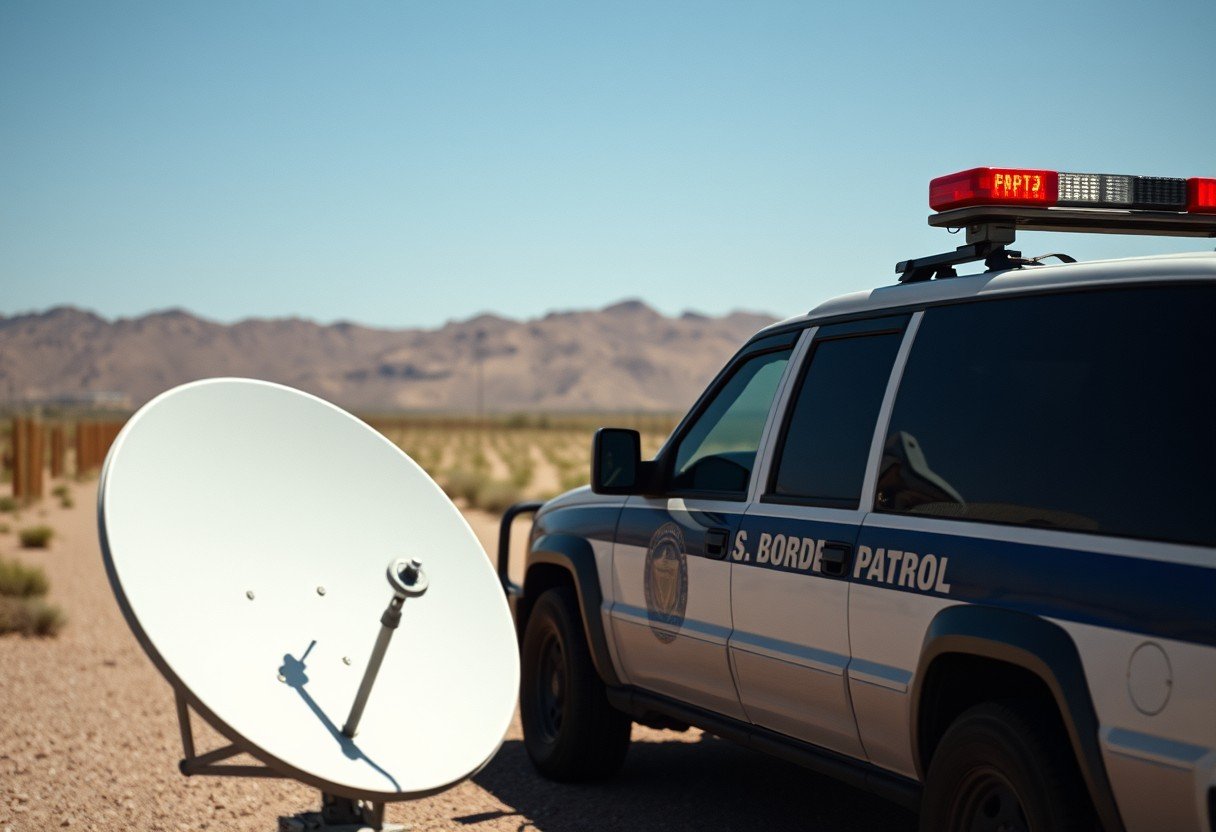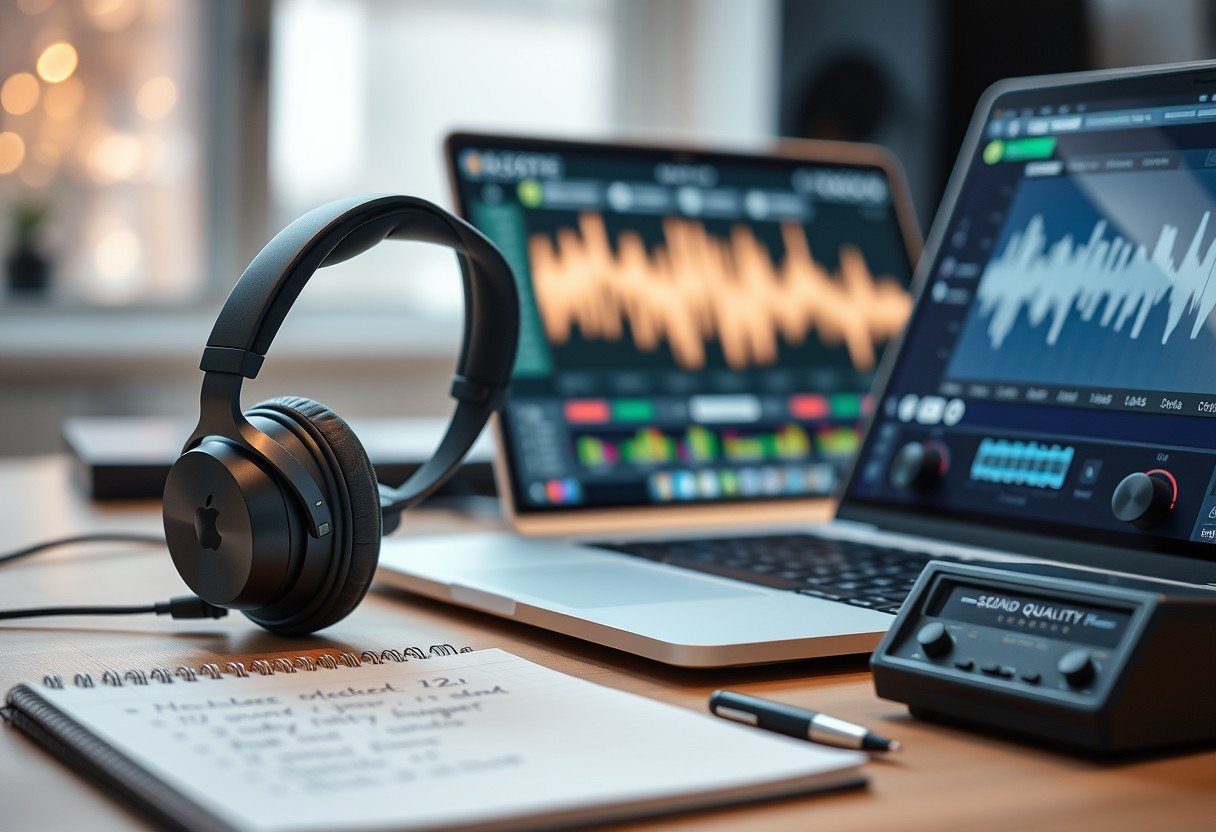Podcasting can seem complex, but it’s more accessible than you might think. For anyone with a voice and a story to share, starting a podcast is a fantastic way to connect with an audience. This guide breaks down the entire process, from getting the right gear to marketing your show, showing you that with a clear plan, podcasting is a rewarding journey, not a difficult chore.
What Do You Really Need to Start a Podcast?
Getting started with podcasting doesn’t require a Hollywood-style studio. The barrier to entry is surprisingly low, and you can begin with just a few essential items. The key is to focus on clear audio, as that is the most important factor for listener enjoyment.
Your initial setup should prioritize function over flash. A good quality microphone is the most critical investment. While professional XLR microphones offer top-tier sound, many high-quality USB microphones are perfect for beginners and can plug directly into your computer.
Along with a microphone, you will need headphones to monitor your audio while recording. This helps you catch issues like background noise or distorted sound in real-time. Finally, you’ll need editing software to clean up your recordings.
| Essential Tool | Beginner Recommendation | Why It’s Important |
|---|---|---|
| Microphone | USB Microphone (e.g., Blue Yeti, Audio-Technica AT2020) | Captures clear, crisp audio for a professional sound. |
| Headphones | Any over-ear headphones | Allows you to monitor sound quality during recording. |
| Editing Software | Audacity (Free) or Adobe Audition (Paid) | Helps you remove mistakes and improve the overall flow. |
Many successful podcasters started with a simple setup. The goal is to produce clean, understandable audio; you can always upgrade your equipment as your podcast grows.
Planning Your Content for Success
A great podcast is built on a strong foundation of well-planned content. Before you even think about hitting the record button, you need a clear vision for your show. This planning phase is what separates engaging podcasts from those that fade away after a few episodes.
First, identify your niche. What are you passionate about? What topic do you have expertise in? A focused niche helps you attract a dedicated audience. Instead of a broad “movie podcast,” consider a “1980s action movie podcast.” This specificity makes it easier to find and connect with your target listeners.
Next, decide on your podcast format. Will it be a solo show where you share your thoughts, an interview-style podcast with guests, or a co-hosted discussion? Each format has its own strengths. A solo show gives you complete creative control, while an interview format can bring fresh perspectives to your audience.
Finally, outline your episodes. A simple script or a list of talking points can keep you on track during recording. Solid planning ensures your episodes have a clear structure and deliver value to your listeners, making them more likely to subscribe and return for more.
The Basics of Recording and Editing
The technical side of podcasting, specifically recording and editing, can seem intimidating, but the basics are easy to master. Your recording environment is just as important as your equipment. Find a quiet space with soft furnishings like carpets, curtains, or a closet full of clothes to reduce echo and absorb background noise.
When recording, your microphone technique is crucial. You don’t need to be a sound engineer to get it right. Simply maintain a consistent distance from the microphone, about 4-6 inches away, and speak clearly. This simple step can dramatically improve your audio quality.
Editing is where you polish your raw recording into a finished episode. For beginners, the process should focus on a few key tasks.
- Removing Mistakes: Cut out long pauses, stumbles over words, or sections that went off-topic.
- Reducing Background Noise: Most editing software has tools to minimize distracting sounds like a humming air conditioner or a dog barking.
- Leveling Audio: Ensure the volume is consistent throughout the episode so your listeners don’t have to constantly adjust it.
As you become more comfortable, you can start adding intro music, sound effects, and other production elements. But for now, focus on making the core audio clean and easy to listen to.
Getting Your Podcast out to the World
Once your episode is edited and ready, the next step is publishing it for people to hear. This is done through a podcast hosting platform. You cannot upload your audio files directly to platforms like Spotify or Apple Podcasts. Instead, a host stores your files and generates an RSS feed.
Think of a podcast host as the home for your audio files. When you upload a new episode, the host distributes it to all the major podcast directories through your RSS feed. This is how listeners can find, subscribe, and download your show on their favorite apps. Popular hosting services include Libsyn, Buzzsprout, and Podbean.
After choosing a host and uploading your first episode, you’ll need to submit your RSS feed to the main podcast directories.
- Apple Podcasts: This is one of the most important directories. Submitting here often gets your show listed in many other apps automatically.
- Spotify: With a massive user base, being on Spotify is essential for reaching a wide audience.
- Google Podcasts: This ensures your podcast is easily discoverable by Android users and through Google searches.
This submission process is typically a one-time setup for each directory. Once your show is approved, new episodes will appear automatically whenever you publish them through your host.
How to Grow Your Podcast Audience
Creating a great podcast is only half the battle; you also need to market it to find listeners. Building an audience takes time and consistent effort, but a few simple strategies can help you grow. The most powerful marketing tool is creating consistently valuable content that encourages word-of-mouth sharing.
Social media is an excellent place to start promoting your show. Create dedicated accounts for your podcast on platforms where your target audience spends their time. Share clips from your episodes, behind-the-scenes content, and engage with listeners who comment. This helps build a community around your podcast.
Don’t underestimate the power of consistency. Releasing episodes on a predictable schedule, whether it’s weekly or bi-weekly, helps build anticipation and keeps your audience engaged. Listeners are more likely to subscribe to a show they know will provide fresh content regularly. According to recent studies, over 41% of Americans listen to podcasts monthly, so a dedicated audience is out there waiting for your content.
Common Challenges for New Podcasters and How to Beat Them
Every new podcaster faces hurdles, but knowing what to expect can help you overcome them. One of the most common challenges is “podfading,” which is when a podcast stops releasing new episodes. This often happens due to burnout or unrealistic expectations.
To avoid this, set a realistic production schedule that you can stick with. It’s better to release one quality episode every two weeks than to burn out trying to produce three episodes a week. Also, remember why you started. Focusing on your passion for the topic can help you stay motivated.
Another common issue is dealing with technical difficulties. Audio problems, software crashes, and editing frustrations are part of the process. The solution is to invest a little time in learning your tools. Watch tutorials and practice with your software before you have a deadline. Joining online podcasting communities can also provide a great support system for troubleshooting and advice.
Frequently Asked Questions
How much does it cost to start a podcast?
You can start a podcast for very little money. A decent USB microphone can cost between $50 and $150, and free editing software like Audacity is very powerful. While you can spend more on hosting and equipment, a budget of under $200 is realistic for a beginner.
How long should a podcast episode be?
There is no magic number for episode length. It depends on your content and audience. Some successful podcasts are 15 minutes long, while others are over two hours. A good starting point for many is 20-45 minutes, as this fits well into a typical commute.
Can I use my phone to record a podcast?
Yes, you can use your phone to record, especially when you are just starting. The audio quality won’t be as good as a dedicated microphone, but it is a viable option. For better results, record in a quiet, small space to minimize echo.
How do I make money from a podcast?
Monetization usually comes after you’ve built an audience. Common methods include sponsorships, affiliate marketing, selling your own products or services, and listener donations through platforms like Patreon. Focus on creating great content first.
What is the hardest part of podcasting for beginners?
For most beginners, the hardest parts are consistency and promotion. It takes discipline to keep producing episodes on a regular schedule and effort to market your show to new listeners. Overcoming these challenges is key to long-term success.









Leave a Comment